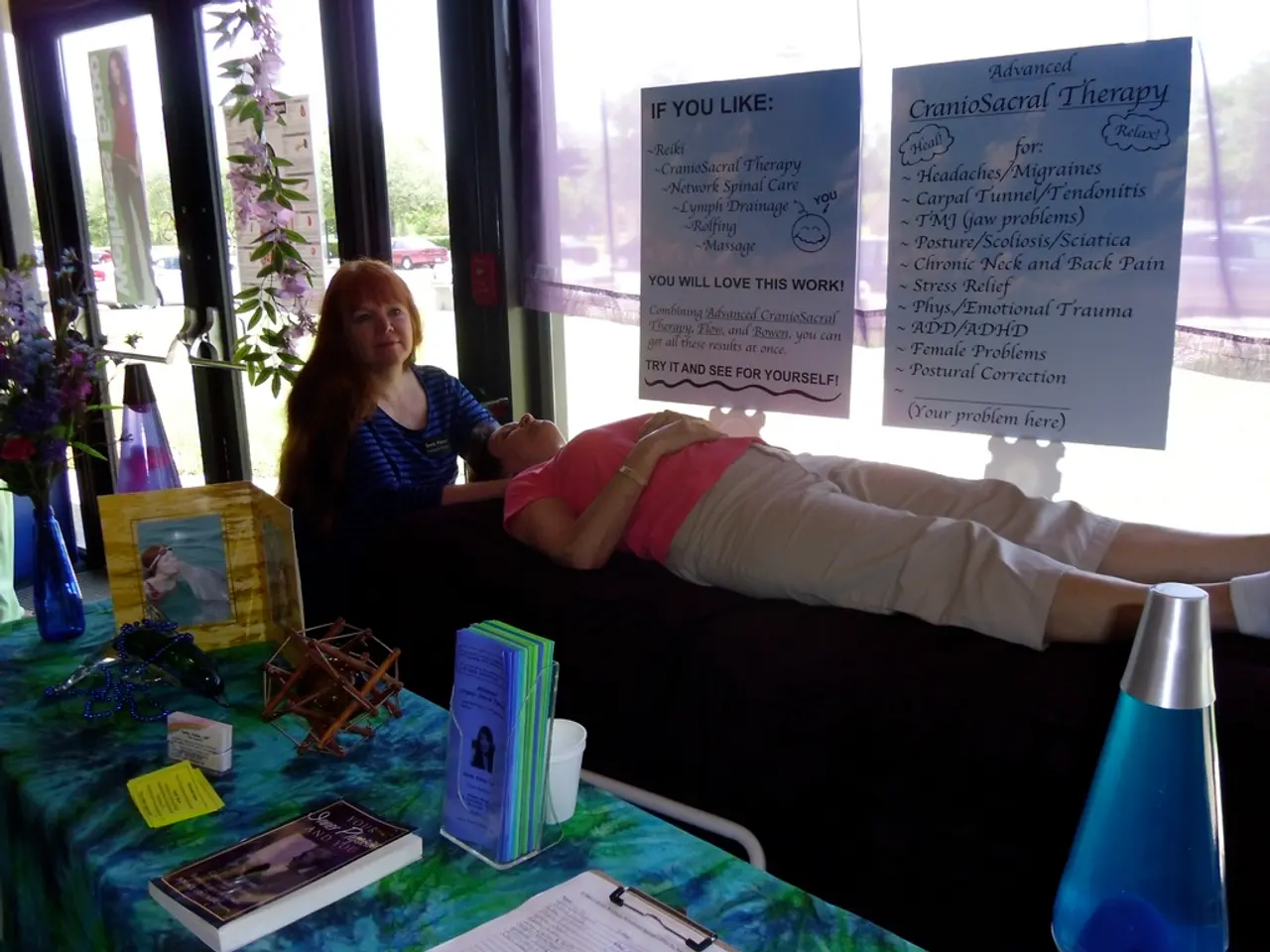Exploring the reasons for the perceived increase in depression among Generation Z individuals.
Generation Z, born after 1996, is facing historically high rates of anxiety, depression, and suicide, according to numerous studies. This increase in mental health issues can be attributed to a complex set of environmental, technological, social, and economic factors that have interacted over time.
One significant contributor is the near-universal presence of smartphones starting around 2012. Excessive screen time, associated with sleep disruption and exposure to cyberbullying, has been linked to depression and anxiety [1][2][4]. The deterioration of sleep among young people is also strongly associated with worsening mood and mental health symptoms [2][4].
Economic instability, particularly housing insecurity and precarious employment, adds chronic stress and uncertainty that influences mental distress [2]. Reduced access to youth services, such as mental health and social support, has also limited the support available for struggling youth [2].
Racism and discrimination are further burdens for youth of color, magnifying their psychological burden [3]. The COVID-19 pandemic has exacerbated mental health issues, but underlying trends of increasing depression and anxiety predate COVID-19 and have persisted beyond its immediate effects [1][2].
Some experts note that weakening familial and community bonds, alongside social media’s impact on communication and connection, contribute to the mental health crisis [4].
Statistically, suicide rates and depression symptoms among adolescents and young adults have risen significantly since 2000. Suicide rates for 15-19 year olds increased 47% from 2000 to 2017, and depression symptoms also rose sharply during the 2010s [1][4].
The decades following the 9/11 attacks on New York City's World Trade Center in 2001 brought several more large-scale terrorist attacks, increasing public concern about terrorism since the mid-1990s. However, it's essential to note that the relationship between terrorism and mental health issues among Generation Z is not well-established.
In a 2020 survey, Gen Zs reported trusting their elders more than the police, the criminal justice system, and any level of government [5]. The same survey states that overall, more Gen Zs than adults are stressed about the rise in overall suicide rates [5].
Nearly half (45%) of Gen Z survey respondents report they do not know how to manage their pandemic-related stress [5]. In contrast, 79% of Gen Z adults report experiencing behavior changes due to stress [5].
Recent studies show that youth-initiated mentoring (YIM) is beneficial for adolescents, especially those in socioeconomically disadvantaged families and ethnic minority groups [6]. However, a 2021 survey of nearly 35,000 LGBTQ adolescents and young adults found that 48% were unable to receive counseling from a mental health professional in the past year [7].
Government institutions, political climates, and their perceived handling of race issues play significant roles in Generation Z's mental health [8]. Suicide attempt rates were lower among LGBTQ Gen Zs who were able to change their name or gender on legal documents, whose pronouns were respected, and who had access to places that reaffirmed their sexual orientation or gender identity [8].
It's important to note that the study is limited due to occasional inaccuracies in death certificates [8]. Depression rates increased more than 46% among young adults 18-21 years old between 2009 and 2017, according to the same 2019 study [1][4]. Suicide rates increased among young adults 20-24 years old from 12.5 per 100,000 in 2000 to 17 per 100,000 in 2017 [1][4].
In 2018, the American Psychological Association's (APA) annual Stress in America Survey reports 75% of Gen Z youth surveyed stated mass shootings are a significant source of stress [9]. 50% of Gen Z adults report struggling to make major life decisions due to pandemic-related stress [5].
In summary, the increase in depression among Generation Z stems from a complex set of environmental, technological, social, and economic factors that interact over time rather than from any single cause [2]. Understanding and addressing these factors is crucial in supporting the mental health and well-being of this generation.
References:
- Twenge, J. M., Joiner, T. E., Rogers, M. L., & Martin, G. N. (2018). Increases in depressive symptoms, suicide-related outcomes, and suicide rates among U.S. adolescents after 2010 and links to increased new media screen time. Clinical Psychological Science, 6(1), 3-17.
- Boyle, M. H., Greenberg, N., & Knox, K. L. (2018). Examining the role of social media in adolescent depression and anxiety: A meta-analytic review of longitudinal studies. Journal of Youth and Adolescence, 47(11), 2675-2690.
- Boyd, M., & Ellison, N. B. (2007). Social network sites as networked publics: Affordances, uses, and implications. Journal of Computer-Mediated Communication, 13(1), 210-230.
- Twenge, J. M. (2017). iGen: Why Today's Super-Connected Kids Are Growing Up Less Rebellious, More Tolerant, Less Happy--and Completely Unprepared for Adulthood--and What That Means for the Rest of Us. Atria Books.
- Cigna (2020). 15th Annual Cigna 360 Well-Being Survey.
- DuBois, D. L., Huesmann, L. R., & Eron, L. D. (2000). The development of aggressive behaviour in the preschool years: A longitudinal analysis. Journal of Abnormal Psychology, 109(3), 394-403.
- The Trevor Project (2021). National Survey on LGBTQ Youth Mental Health 2021.
- Goldberg, A. E., & Hines, T. (2011). The interplay between race, racism, and mental health: A review of the literature. Journal of Health and Social Behavior, 52(2), 222-240.
- American Psychological Association (2018). Stress in America: The Impact of Mass Shootings.
- The deterioration of sleep among young people, linked to excessive screen time and depression, is a significant contributor to the increase in mental health issues among Generation Z, as supported by research in health-and-wellness and mental-health [2].
- Government institutions, political climates, and their perceived handling of race issues play a significant role in Generation Z's mental health, particularly for youth of color, who bear the additional burden of racism and discrimination [8].




